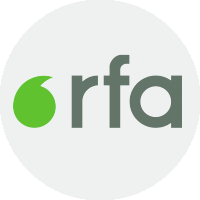
Structure
USAGM provides multimedia broadcast distribution, as well as technical and administrative support to the broadcasting networks. It manages a global network of transmitting sites and an extensive system of leased satellite and fiber optic circuits, along with a rapidly growing internet delivery system servicing all USAGM broadcasters. It is also the administrative and marketing arm of the Agency.
USAGM also oversees six entities: two federal organizations — the Voice of America and the Office of Cuba Broadcasting, which oversees Radio and TV Martí — and five non-profit organizations — Radio Free Europe/Radio Liberty, Radio Free Asia, the Middle East Broadcasting Networks, the Open Technology Fund, and the Frontline Media Fund — which receive grants from USAGM.

Entities
Our Networks
Every week, more than 420 million listeners, viewers and internet users around the world turn on, tune in and log onto U.S. international broadcasting programs. The day-to-day broadcasting activities are carried out by the individual USAGM international broadcasters.





